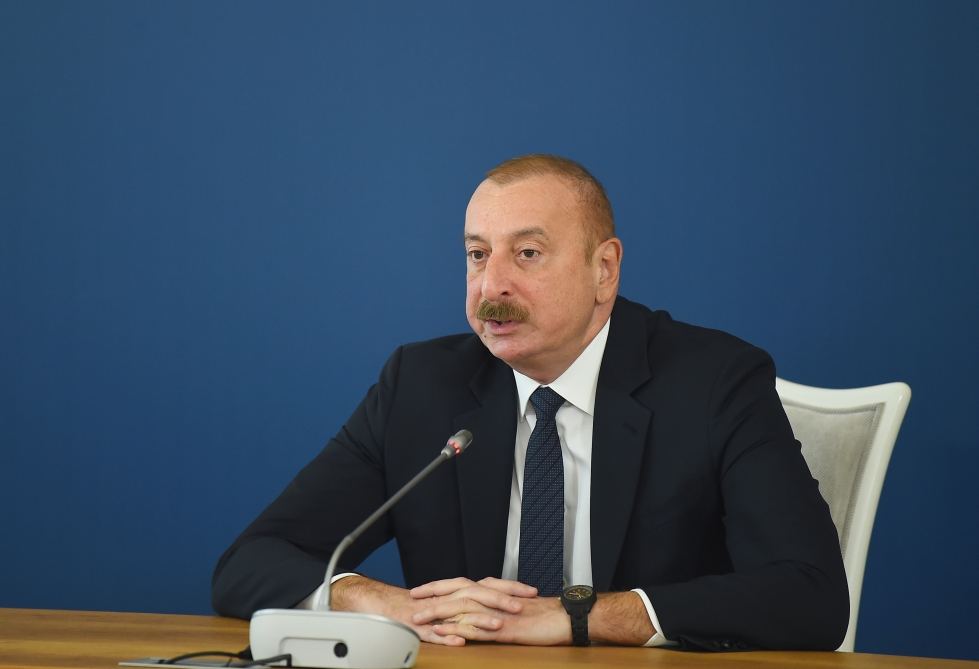BAKU, Azerbaijan, May 5. The impact of the geopolitical changes in the world on the global supply chains was inevitable. To avoid major disruptions, the largest players in Eurasia began to find gateways to shift from their usual routes. In this regard, many of them turned to Azerbaijan. President Ilham Aliyev’s transit development strategy has once again proved to be exceptional.
The routes through Azerbaijan are now more attractive than ever, as the country creates all conditions to ensure safe transit in the shortest possible time. Azerbaijan’s modern railway, automobile and maritime transport infrastructure saves money and time. No wonder that the volume of cargo transit through Azerbaijan increased by more than 75 percent over the last year.
The economies of Central Asia have long ago established solid cooperation with Azerbaijan, especially, in regard with establishing stable transit routes through the Caspian. The countries of the region are using Azerbaijan’s infrastructure even more actively right now. For instance, just recently, Kazakhstan has reached an agreement with SOCAR to deliver 1.5 million tons through the Baku-Tbilisi-Ceyhan pipeline in 2023. Following this deal, Kazakhstan’s oil supplies through Azerbaijan jumped to 163,436 tons in 1Q2023 from 28,875 tons over the same period of 2022. Currently, negotiations are underway to build up these volumes further.
Moreover, Azerbaijan is also a transit point for Kazakhstan’s uranium exports to Europe. Since Central Asia is one of the world’s largest regions for uranium deposits and is eager to expand its production and processing of this resource, and while several European countries are now looking to revive their nuclear power development, Azerbaijan here is crucial in terms of providing supply ways, so both the sides benefit.
As President Ilham Aliyev noted, as he addressed the 4th international conference on “Shaping the Geopolitics of the Greater Eurasia: from Past to Present to Future” in Shusha on May 3, today, Central Asia expresses more interest in transport infrastructure on the territory of Azerbaijan.
“Central Asia and Azerbaijan in the future can be more integrated because, of course, first of all, transportation, security issues, because today issues of transportation security and access to export markets for Central Asian countries become more important than a while ago. It's understandable why. And here is a friendly country with already modern transportation infrastructure whether its railroad, sea ports, biggest fleet in the Caspian, also, by the way, growing number of vessels in the Black Sea,” President Ilham Aliyev pointed out.
Being at a crossroads of the main transport routes of the continent, such as the Middle Corridor, North South Corridor, and, potentially of the One Belt and One Road initiative, Azerbaijan will continue to play substantial role in their relevance, and will highly contribute to their development.
Here, the project of the Zangezur corridor will be one of the decisive elements for the successful development of these routes. As this route can be a part of the One Belt and One Road, as well as the North South Corridor, the potential of this project expands from regional to global.
“Zangezur corridor is important not only for Azerbaijan and Armenia, but I think on a global scale. Because we expect a growing number of cargoes, growing volume of cargoes. So, the more roads we have the better. As far as we're concerned, next year we will complete the construction of the railroad, which was dismantled during the times of occupation and it was sold on the market by Armenians from Fuzuli to Zangilan, almost to Armenian border and 40 something kilometers on the territory of Armenia. If built, that will be, of course, an international project,” President Ilham Aliyev explained.
Regarding the development of the Middle Corridor, Azerbaijan is now investing additional funds into the expansion of the Baku-Tbilisi-Kars railroad on the Georgian territory, having already allocated about $140 million to expand the capacity of this route up to 5 million tons by railroad. It is expected to achieve these numbers in approximately one year from now.
“Azerbaijan is considered to be an important part of that project [Middle Corridor], especially now. So, we are very optimistic, what adds optimism is, first, that we made very good homework, as I said already, we modernized completely and still in the process of final, final touch, I would say, to modernize and to prepare more capacity for transportation infrastructure. At the same time more interest from Central Asia to use our infrastructure,” President Ilham Aliyev mentioned.
Located at the intersection of North-South and East-West transport corridors, Azerbaijan is recognized as an important transport and logistics hub of the region. International transport corridors through its territory have a great advantage in terms of both distance and time. The Baku-Tbilisi-Kars railway and the Baku International Sea Trade Port further enhance opportunities in this regard. At the same time, these opportunities increase the volume of transit cargo.
Recent geopolitical uncertainties have led to significant changes in transport and logistics. Here is when Azerbaijan has come to the rescue. Having invested billions of dollars into transport infrastructure over the past 30 years, Azerbaijan has created new opportunities for the countries of the wider region. Thanks to the farsighted policy of President Ilham Aliyev in regard with developing the region’s transit potential, today, everyone turns to Azerbaijan because of the efficiency and convenience of the routes the country provides.







